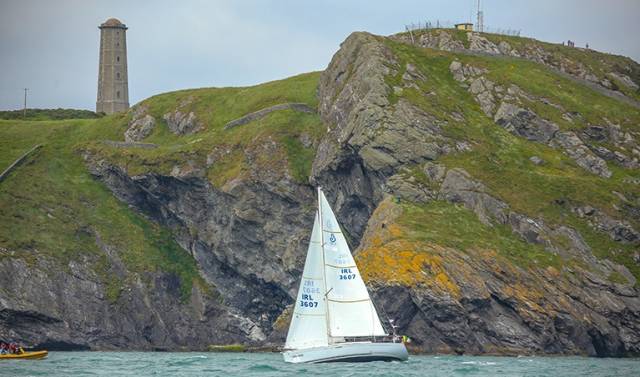Maritime tourism operators featured at the 2016 Irish Responsible Tourism Awards announced at a ceremony yesterday in Dublin.
In the best for Natural Heritage Tourism category, a silver award went to Sea Synergy Marine Awareness & Activity Centre (Co. Kerry). The marine interpretive centre located in the heart of the coastal village Waterville displays interactive displays on Ireland's marine life, such as turtles, sharks, swordfish, bones from whales and dolphins.
In the best Innovation in Responsible Tourism, the Great Lighthouses of Ireland was another Silver award winner. The tourism initiative, is a new all-island tourism initiative, developed by the Commissioners of Irish Lights and features twelve lighthouses in breathtaking coastal locations. The project offers visitors from home and abroad the chance to visit or stay in a lighthouse, to find out about their history, to appreciate the spectacular natural world around them.
The awards are a response to demand from the Irish trade for a new type of awards showcasing the best in Irish responsible tourism. The 2016 Irish Responsible Tourism Awards aim to inspire replication, to excite media interest, to encourage competition and celebration from across the tourism industry on the island of Ireland.
The Irish Responsible Tourism Awards are part of a growing family of worldwide responsible tourism awards which are all linked to the World Responsible Tourism Awards, founded by responsibletravel.com. Winners of each of the categories will be longlisted for the World Responsible Tourism Awards - a great opportunity for the Irish trade to raise international awareness.
The shortlist for the awards, which attracted entries from almost every county in Ireland, was announced in early September following assessment by a panel of industry experts chaired by international responsible tourism expert Professor Harold Goodwin. The award categories and the winners of the Silver & Gold awards are:
Best for Natural Heritage Tourism
· GOLD: Doolin Cave (Co. Clare)
· SILVER: Burren Nature Sanctuary (Co. Galway)
· SILVER: Sea Synergy Marine Awareness & Activity Centre (Co. Kerry)
Best for Accessible & Inclusive Tourism
· GOLD: Gleneagle Hotel Group (Co. Kerry)
· SILVER: Mobility Mojo
Best Local Authority Initiative for Responsible Tourism
· GOLD: Lough Muckno - Monaghan County Council
· SILVER: Westport Smarter Travel Bike Buffet - Mayo County Council
Best Tourism Accommodation for Local Sourcing
· GOLD (joint): Sea View House (Co. Clare) and Fuchsia Lane Farm Holiday Cottages (Co. Tipperary)
· SILVER: Hotel Doolin (Co. Clare)
Best Destination for Responsible Tourism
· GOLD: Mulranny (Co. Mayo)
· SILVER: Inishbofin Island (Co. Galway)
· SILVER: Sheep’s Head Way (Co. Cork)
Best Innovation in Responsible Tourism
· GOLD: The Blackfriary Community Heritage and Archaeology Project (Co. Meath)
· SILVER: Great Lighthouses of Ireland
Overall Winner: Mulranny (Co. Mayo)
Judges for the awards include:
Catherine Mack (responsibletravel.com)
Kevin Griffin (DIT tourism lecturer and former-EDEN awards judge)
Paddy Mathews (Fáilte Ireland)
Annabel Fitzgerald (Irish Water & formerly Coastal Programmes Manager An Taisce)
Mark Henry (Central Marketing Director, Tourism Ireland)
Cyril McAree (Managing Director, Hotel & Restaurant Times)
Fáilte Ireland’s Head Investment & Innovation, Paddy Matthews said, “A more environmentally conscious and community-centred approach to developing tourism in Ireland is becoming more and more mainstream... and so it should. It results in more genuine and authentic experiences for all our visitors.”
The awards took place at the 3nd Irish Responsible Tourism Conference organised by the Irish Centre for Responsible Tourism. The Irish Centre for Responsible Tourism was established in 2013 to promote responsible tourism on the island of Ireland































































